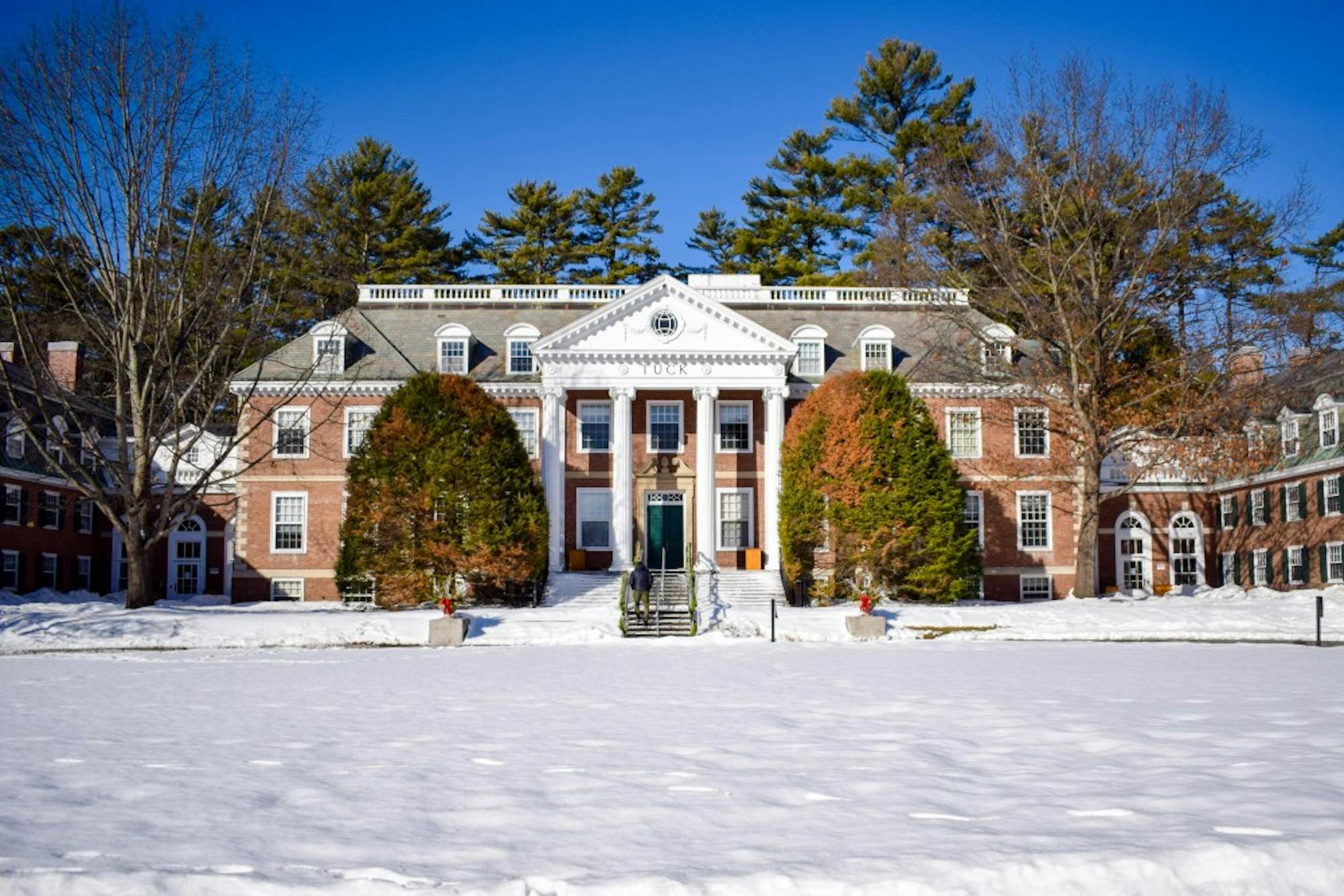On Feb. 1, the Tuck School of Business announced that Paul Raether Tu’73 and his family had donated $15 million toward scholarships, matching the largest ever donation in the history of Tuck. Pledged in 2017, the donation increased Tuck’s endowment to over $100 million by the end of the calendar year.
Raether, who sits on Tuck’s Board of Overseers, is currently a member of Kohlberg Kravis Roberts & Co., a global investment firm. Arnold Raether, Paul Raether’s father, first supported Tuck in the 1980s when he would pay students’ tuition bills informally. The Raethers’ contributions have since expanded to fund faculty endowments, facilities, scholarship programs and programs like “Next Step: Transition to Business,” which helps veterans and elite athletes transition their careers.
“[Paul Raether] has relationships across the school for many of the areas he supports,” Tuck executive director for advancement Erin Tunnicliffe Tu’97 said.
Executive director of admissions and financial aid Luke Anthony Peña emphasized that Paul Raether’s donation is important to Tuck’s student community.
“For Tuck, this donation ensures that we have the ability to enroll more incoming students who significantly contribute to Tuck’s immersive learning community,” Peña said. “We strive to offer scholarships to outstanding students who, absent funding, might not attend the Tuck School.”
The goal of the admission team is to completely remove the financial barriers to enroll for students, Peña said. Paul Raether’s $15 million donation will be completely allocated to student scholarships as per his wishes.
“A gift of that magnitude is a really big addition to our resources for scholarships,” Tunnicliffe said. “Their donation will help us in creating more robust offers to students to make costs less of an issue when they come to Tuck.”
In 2017, The Economist ranked Tuck as the eighth best business school in the world.
“We’ve been blessed with really terrific leaders that are out and about and meeting with alumni in forums large and small all the time,” Tunnicliffe said.
Tunnicliffe also said Tuck students make strong connections while they are in Hanover. Peña added that over two-thirds of Tuck alumni donate and are active after graduating.
Peña cited philanthropic giving as a personal and individual matter that usually relates to causes that donors personally identify with.
“[Paul Raether] is one of our generous donors who believes in the affordability of higher education,” he said.
According to Peña, Tuck’s admissions team attempts to attract and select diverse candidates to maintain Tuck’s prestigious and competitive landscape. Financial scholarships provide incentives for applicants and admitted students to choose Tuck, he added.
“While our alumni donors have ensured that our scholarship budget is generous, I acknowledge that it still is not enough to remove the barriers for our great students,” Peña said.
Martial Combari Tu’18, who is a co-chair for the Tuck Diversity Conference, said while Tuck has done a “wonderful job” at recruiting and welcoming students, there is still work to be done. The Class of 2019 is 44 percent women, which is higher than other top business schools, he said. However, Tuck also has a much smaller class size than other business schools.
“Oftentimes students will want to come to Tuck and then look at their options and realize Tuck is expensive,” Combari said. “Giving merit scholarships to students will give leverage to attract more talent.”
Combari added that he believes that financial aid plays a significant part in a student’s experience. To attend Tuck, he said, students take time out of the “business and corporate world” for two years and sometimes accumulate debt, which can create pressure for business students to “make friends and then find a job ... and pay off the loans.”
“There is this balance that affects how one goes about their experience at Tuck,” he said.




